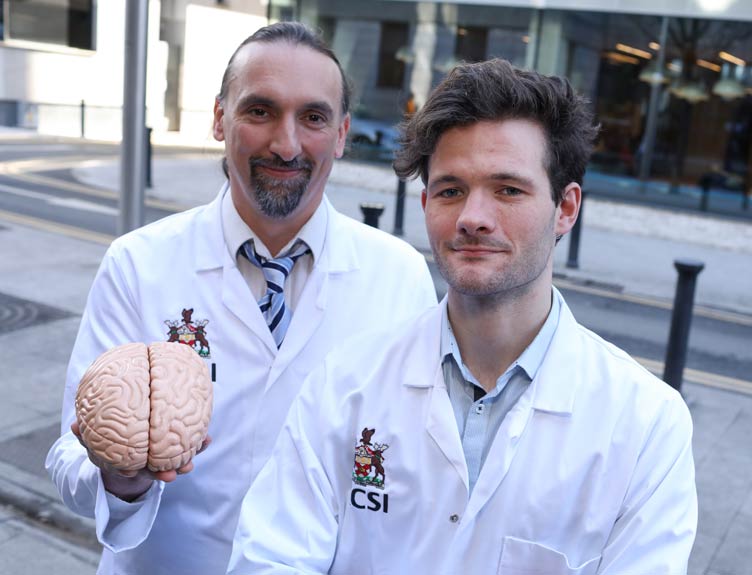New blood test to detect Alzheimers in early stages developed by RCSI researchers

A team of researchers, at RCSI in Dublin, has developed a new blood test that can diagnose Alzheimer’s disease in its early stages and can also predict how the disease will progress.
Their study has shown that concentration changes of a small molecule in the blood can diagnose the disease at a stage when other symptoms are mild. Early diagnosis holds the best opportunity for potential future treatments of the disease and improving the quality of life for patients with Alzheimer’s. The research is among the innovations being presented at RCSI Research Day 2018, which takes place today at RCSI.
This multi-centre study was carried out by academics and clinicians from Ireland and Spain. It is being presented today by Aidan Kenny, a PhD student at the Department of Physiology and Medical Physics, RCSI.
Dr Tobias Engel, Lecturer in Physiology, RCSI and Principal Investigator on the project said: ‘People are living longer today and because of this the incidence of age-related brain diseases such as Alzheimer’s will rise. Research into the condition is largely focussed on the development of new therapies, however, new therapies need diagnostic methods which are affordable and minimally invasive and can be used to screen large populations. Our research carried out over the past four years has identified changes in blood levels of a small molecule called microRNA which is able to diagnose Alzheimer’s disease at a very early stage and is able to distinguish Alzheimer’s from brain diseases with similar symptoms.’
Alzheimer’s disease is one of the most devastating brain diseases affecting 48 million worldwide and an estimated 20,000 –25,000 in Ireland, with an associated cost of up to €400 million per year to the health care system. No new therapy has passed clinical trials in 20 years, and much of the failure in clinical trials has been attributed to application of therapies at advanced stages of Alzheimer’s where damage to the brain becomes irreversible. For treatments to be successful, the early stages preceding the full onset of Alzheimer’s need to be targeted. At present there is no blood test available to clinicians that can be used to diagnose Alzheimer’s disease.
This work was supported by funding from Science Foundation Ireland under the COEN initiative (NEUROmiR) and RCSI under the Strategic Academic Recruitment (StAR) Programme. Dr Engel is working with clinical colleagues to advance the translation of this research to make it available as a test for patients.
The John J Ryan Distinguished Lecture at RCSI Research Day 2018 entitled ‘Translating Microbiome Science’ will be delivered by Professor Fergus Shanahan, Director of the Alimentary Pharmabiotic Centre (APC) Microbiome Institute at University College Cork.
RCSI’s annual Research Day provides scientists with the opportunity to showcase their most recent research findings. The latest advances in biomedical sciences, clinical research, population health sciences, healthcare delivery and health professions education are just some of the topics featured in studies which will be presented today to more than 300 researchers who are expected to attend.
Professor Ray Stallings, Director of Research and Innovation at RCSI said: ‘RCSI’s annual Research Day is a vital platform for highlighting the scope of research and innovation taking place across the different disciplines in the College, particularly amongst young researchers. We are committed to nurturing world-class research that can translate into treatments and benefits for patients and society, beginning at undergraduate level right up to the highest-calibre research-active academic staff. RCSI’s Research Showcase recognises a selection of RCSI’s ground-breaking innovators and highlights some leading researchers within RCSI who have been awarded major international funding and are making impactful contributions to research that is improving human health.’
The emphasis for RCSI Research Day is on research presentations by investigators early in their career, post-doctoral fellows, post-graduate and undergraduate students and academic staff. All oral presentations and poster presentations will be judged and awards will be presented at a ceremony later this evening. RCSI’s Office of Research and Innovation will also present the 2017 CEO Innovation Awards at Research Day 2018.
For further information on RCSI Research Day 2018 visit: rd.rcsi.ie



